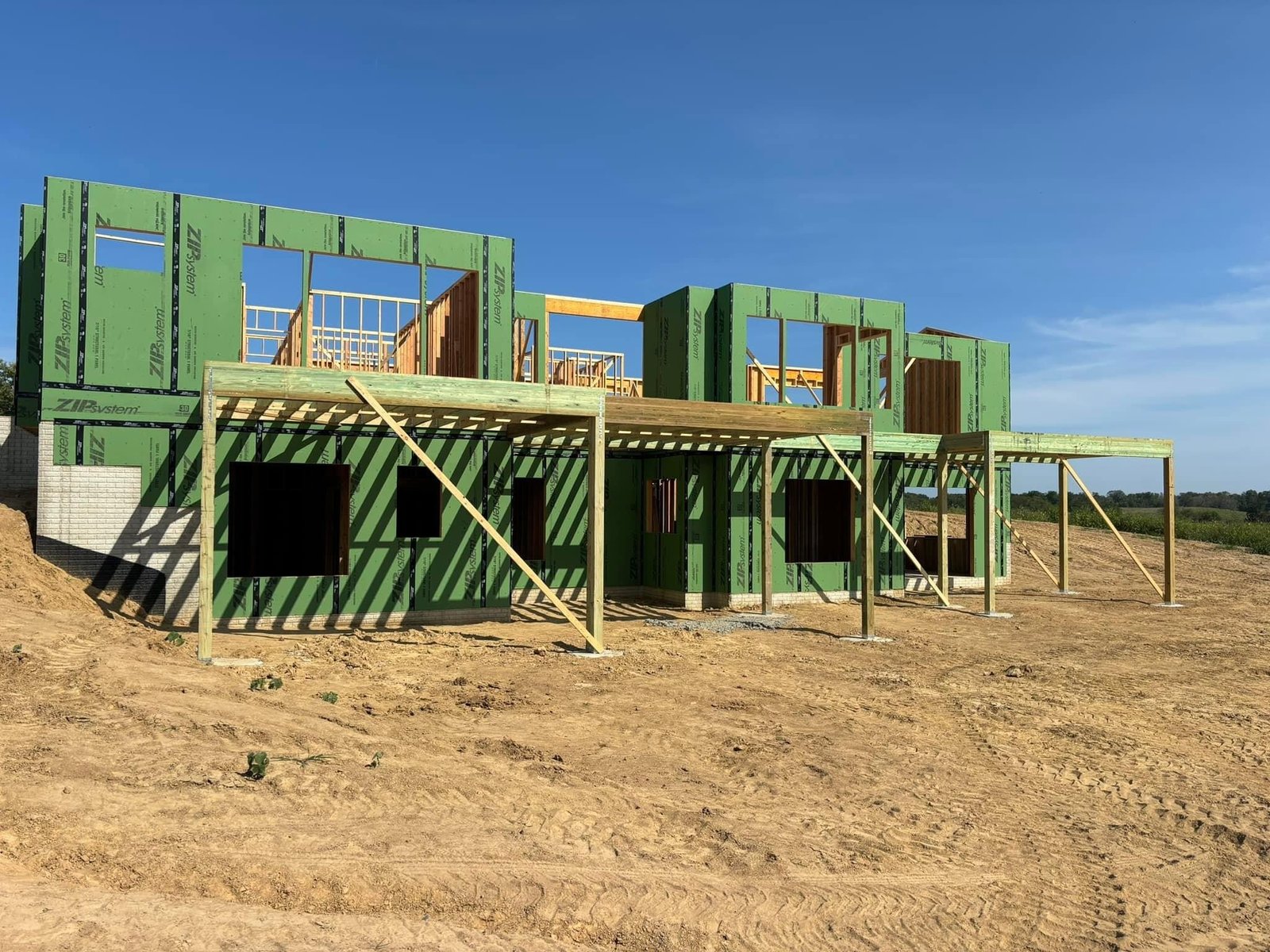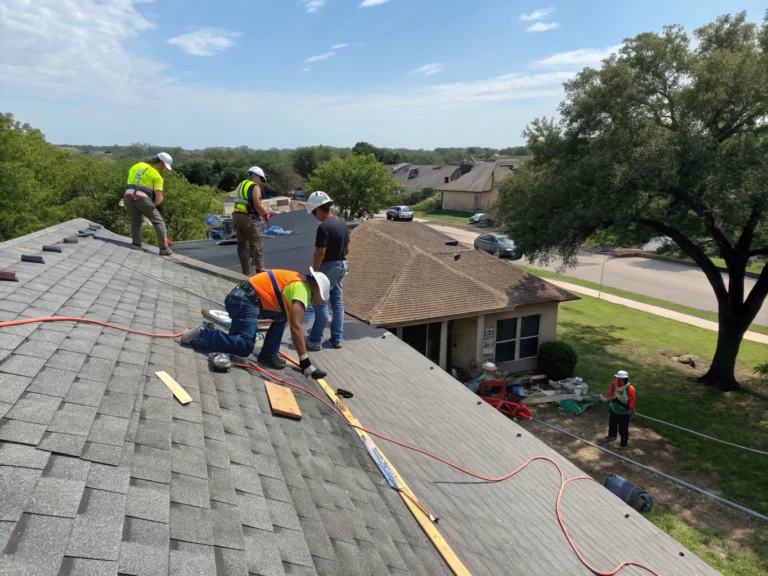Framing Material Costs: Wood, Steel, and Concrete
When planning a construction project, one of the most significant factors to consider is the cost of framing materials. Whether you’re building a 1,000-square-foot home, a 750-square-foot addition, or a detached garage, the choice of framing materials and the associated costs will affect the overall construction budget.
In this article, we’ll break down the costs of the three most common framing material: wood, steel, and concrete, exploring how labor costs, material prices, and additional cost factors influence your framing budget.
Understanding Framing Material Costs
The framing process is an essential part of any construction project. Framing provides the structural support for a building, from its exterior walls to its roof frame and load-bearing walls. The choice of framing materials—whether wood, steel, or concrete—can significantly influence the overall project cost.
Wood Framing Costs
Average Cost of Wood Framing Materials
Wood framing is the most common choice in residential construction due to its versatility and relative cost advantages. The average cost of wood framing materials ranges between $7 and $16 per square foot. However, this price range can vary based on current market prices, the size of the building, and regional availability of materials.
- Dimensional Lumber: This is the most common material used in house framing projects. The cost of lumber fluctuates based on market conditions, but you can expect to pay approximately $4 to $6 per foot for materials like 2x4s and 2x6s.
- Plywood Prices: Plywood is often used in wall framing and floor joists. Plywood prices can range from $10 to $35 per sheet, depending on the thickness and grade.
- Wood Studs: For a typical residential project, wood studs, especially 2x4s or 2x6s, are used as wall studs. A single wood stud costs around $2 to $5, depending on the length.
Labor Costs for Wood Framing
Framing labor costs for wood typically fall between $4 and $10 per square foot, depending on the complexity of the design. Labor prices also vary depending on the location and expertise of the framing contractor. More intricate designs, such as those with vaulted ceilings or 45-degree corners, require more labor hours, increasing the overall labor expenses.
Additional Costs for Wood Framing
In addition to the cost of lumber, there are other material costs associated with wood framing, including:
- Wall Height and Stud Spacing: Taller walls or those with closer center spacing (16 inches on center vs. 24 inches on center) require more framing lumber, increasing costs.
- Building Codes: Depending on local building codes, you may need to use extra materials for structural support or fire resistance, which adds to the total cost.
- Additional Expenses: Don’t forget the additional costs for items like crown molding, horizontal plates, and feet of plate lumber for wall framing.
Steel Framing Costs
Average Cost of Steel Framing Materials
Steel framing is becoming more popular in commercial buildings and some residential projects due to its strength and durability. The average cost of steel framing materials typically ranges from $9 to $14 per square foot.
- Metal Stud Framing: Metal stud framing, commonly used in commercial framing projects, can cost between $2 and $4 per linear foot. Steel frames are often used for their ability to support heavier loads and their resistance to termites and rot.
- Domestic Steel Prices: Like lumber, domestic steel prices fluctuate based on market share and global exchange rates, so steel framing costs may rise or fall depending on economic conditions.
Labor Costs for Steel Framing
Labor rates for steel framing are generally higher than for wood because the installation process is more specialized. The average labor cost for steel framing ranges from $5 to $12 per square foot. Additionally, metal framing requires air tools and coordination tools that can increase labor hours.
Additional Costs for Steel Framing
The cost of steel framing includes several additional expenses that must be factored into the total cost:
- Electrical Outlets and Wiring: Running electrical wiring through steel studs often requires special considerations, such as joint tape and protective grommets, which can increase the complexity and cost of installation.
- Building Plan: Steel framing may require a more detailed building plan to ensure that all components fit together correctly, especially in commercial framing projects with complex floor plans and architectural designs.
Concrete Framing Costs
Average Cost of Concrete Framing Materials
Concrete is often used in the construction of larger homes, commercial buildings, and projects that require higher levels of durability and fire resistance. The average cost of concrete framing materials can range from $10 to $25 per square foot.
- Concrete Forms: Concrete forms are used to shape the concrete into walls or other structural elements. These forms can cost several thousand dollars, depending on the size and complexity of the project.
- Concrete Masonry Unit (CMU): For projects involving concrete masonry units, the cost can range from $5 to $15 per square foot, depending on the size of the blocks and whether additional reinforcements are needed.
Labor Costs for Concrete Framing
Labor costs for concrete framing are typically higher than both wood and steel framing due to the intensive labor required to pour and shape the concrete. The average labor cost for concrete framing is between $7 and $15 per square foot. Complex additions, such as concrete walls for a full-on addition or multi-story home, require skilled labor and more hours for labor.
Additional Costs for Concrete Framing
Concrete framing often involves several additional cost factors that can increase the overall project cost:
- Foundation Type: Whether you’re using a concrete slab foundation or more complex foundation types will significantly impact the cost. Concrete slab foundations for a 3,000-square-foot house can cost thousands of dollars in materials and labor.
- Energy Costs: Concrete walls provide excellent thermal insulation, but the energy costs for heating and cooling the building must be factored into the long-term expenses of the project.
Factors Influencing Framing Costs
Regardless of whether you choose wood, steel, or concrete for your framing materials, several factors influence the overall framing costs for your construction project:
1. Size and Square Footage
The size of your project is one of the biggest factors affecting framing costs. A larger home or addition will naturally require more materials and labor, driving up costs. For example, framing a 2,000-square-foot home typically costs more than framing a 1,000-square-foot home due to the additional feet of lumber or steel required.
2. Design Complexity
Complex designs, such as vaulted ceilings, intricate roof trusses, and 90-degree corners, add to the total cost of house framing. More complex floor plans require more labor hours, driving up both material costs and labor expenses.
3. Local Labor Rates and Material Prices
Labor rates vary based on your location and the availability of skilled workers. Additionally, material prices fluctuate based on current market prices and regional availability, so the cost of lumber, steel, or concrete may be higher or lower depending on the local market.
4. Building Codes and Permits
Building codes dictate what type of framing materials can be used and the necessary reinforcements for load-bearing walls, roof framing, and other structural elements. In addition, building permits are required for most construction projects, and permit fees can add hundreds to thousands of dollars to the total project cost.
Cost Comparison: Wood vs. Steel vs. Concrete
When comparing wood, steel, and concrete framing, each material has its own set of cost advantages and disadvantages.
- Wood Framing: The most cost-effective option for residential construction, especially for simple designs and one-story homes.
- Steel Framing: While more expensive than wood, steel framing offers increased durability and is often used in commercial buildings or homes in areas prone to pests and moisture.
- Concrete Framing: The most durable and fire-resistant option, but also the most expensive due to the cost of materials and labor.
How to Get an Accurate Estimate
To get an accurate estimate of your framing costs, it’s essential to work with an experienced Framing Contractor who understands the type of project you’re planning. A cost estimator can provide a rough estimate of material and labor costs based on your building plan, design complexity, and local labor prices. Additionally, using a framing calculator can help you get a more precise idea of the total project cost, factoring in material costs, framing labor cost, and any additional expenses.
Get the Most Precise Estimate
Whether you’re building a new home, adding a detached garage, or undertaking a full-on addition, understanding the cost of framing materials is crucial for budgeting your construction project. Wood, steel, and concrete each have their advantages and price ranges, and the final choice will depend on your specific needs, design complexity, and budget.
Need a reliable contractor to help you with your framing project? Contact LV Design & Build today for a free, accurate estimate of your framing costs. Our expert team is here to guide you through the entire construction process, ensuring your project is completed on time and within budget. Let’s start building your dream home!







